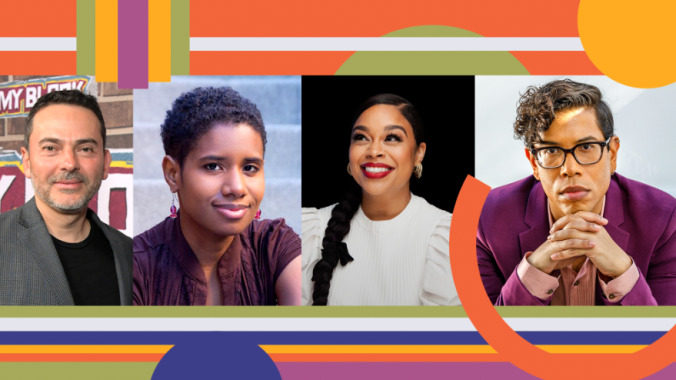Progress report: Steven Canals, Julissa Calderon, Eddie Gonzalez, and Santa Sierra talk inclusivity on TV
It’s Latinx Heritage Month, a time for Latinx people in the U.S. to celebrate the many cultures (and nationalities) that make up the fairly nebulous notion of Latinidad. Just as importantly, it’s an opportunity to reflect on our progress and setbacks, whether it’s having multiple Latinx-led series across networks (cable and broadcast) and streaming platforms, or seeing Latinx performers shut out of this year’s Emmy acting categories. We must also, when assessing any gain and loss, take into account how often queer Latinx and AfroLatinx people are often excluded from consideration in both.
That conversation is long overdue, and merits at least a day’s worth of panels with people across the diaspora. But for this Latinx Heritage Month, A.V. Club TV editor Danette Chavez wanted to at least get the ball rolling and bring together Latinx creatives for a frank and vibrant discussion on their experiences in Hollywood, the steps being taken toward greater inclusivity across the industry, and why humanization is still such an important part of their storytelling. She was joined in September for a video call by Steven Canals, co-creator, writer, director, and executive producer for Pose; Julissa Calderon, star of Gentefied and the upcoming Bridges; Eddie Gonzalez, co-creator and writer for On My Block; and Santa Sierra, a writer and co-executive producer on the upcoming spin-off Power Book III: Raising Kanan. You can watch the complete roundtable discussion above, and read some excerpted insights below.
The A.V. Club: The Los Angeles Times recently reported on a survey that found that immigration-centered stories on TV inspired greater empathy for immigrants among viewers. Do you see this as a step forward? And why is humanization still so necessary in Latinx stories?
Santa Sierra: Right now, we are living in probably the most unsympathetic society. We are led by someone who is incredibly selfish and seems to not care about other human beings, doesn’t seem to have empathy. So I’m not surprised that Americans need to be pushed a little bit to see other people that do not look like them as humans. I feel like we need to keep doing it. We need to keep forcing them to see us as humans. It really sucks that we have to do it. I wish that people would just wake up and automatically be like, “Black people matter. Latinos matter. Women matter.” But that’s not going to happen. I keep feeling like we do need to force it down people’s throats.


 Keep scrolling for more great stories.
Keep scrolling for more great stories.